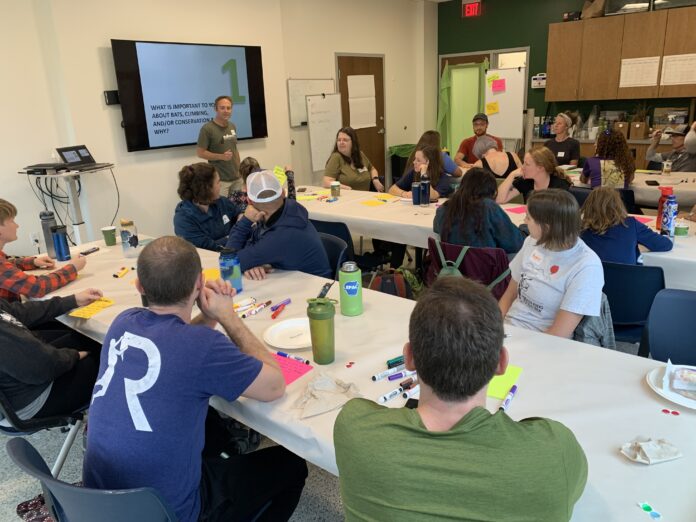SRU professor Shawn Davis is working on two research projects affecting the world.
Davis received his doctorate from Colorado State University in Fort Collins and has been at SRU for seven years as a professor in parks and management.
He completed a master’s thesis on people’s environmental education through interpretive signs at natural areas around Fort Collins. While Davis was going on to earn his doctorate, an advisor who knew him received a National Science Foundation (NSF) grant to study climate change in national parks.
Davis was then asked if he wanted to join the project, and he agreed. He was a doctoral candidate through the project.
“It was just a great opportunity, and I got to travel to all these awesome national parks and get to talk with a whole bunch of visitors and things like that as well,” Davis said.
The initial study was formed in conjunction with National Parks and Fish and Wildlife agents. Davis, his advisor and the other researchers traveled all over the country to see where climate change was having the most visible impacts.
Davis traveled to various national parks and wildlife refuges while working with about four undergraduate researchers to help collect survey data.
Visitors were asked to take a survey and the information was used to have a better understanding of how they talk about climate change, as well as developing education campaigns.
“What we found with their visitors is they are way more into the perspective of wanting to learn more about climate change and want to know more what type of actions they could take,” Davis said.
Since various environmental educational campaigns came out of this research, The National Park Service and The Fish and Wildlife Service chose to fund Davis and his advisor to do this study again.
It has been about a decade since this study was done, so they will do research at new and already existing sites to update the information.
Davis is currently teaching a survey methods class where he will choose 4 students at the end of the semester. In 2025, they will travel to various national parks and survey visitors like he did.
“We’re really excited about that prospect and how this kind of original research has come full cycle to SRU and to benefit SRU students, so really exciting,” Davis said.
“We’ve updated our surveys as well to find out a little bit of different information on climate change over 10 years has become a little more popular in the media, but also the effects of climate change have become much more compounded in our natural areas,” Davis said.
“And so, we’re even exploring things that we didn’t even think of exploring 10 years ago like the phenomena of last chance tourism where more people might be going to these parts of protected areas to see polar bears and glaciers, which they feel rightfully so aren’t going to be around in the next 10 – 20 years.”
This is not the only research Davis is currently working on.
Davis, who enjoys climbing, was able to use this project to bring his various interests together.
Climbers for Bat Conservation (CBC) is going on its 11th year.
CBC is an organization that focuses on bat conservation and keeping bats safe who live in unexpected cracks of mountains, while also keeping humans safe when they are climbing and might not know a bat is roosting.
When they started getting reports from Mountain Project warning of bats living in certain areas, it sparked lots of questions.
Mountain Project is a website climbers use to find information and routes in different areas.
When bats were in these unexpected areas, management would have to close due to climbers disturbing the bats. Individuals started to get upset due to mountain closure.
The organization wanted to bring people together including climbers, land managers and bat biologists to dive deeper into the bats living in these mountains while helping to conserve bats but also preserve the access for climbers.
“When we set out and we had some feedback from climbers, they were like ‘we should develop some kind of app or website so you can track all of the different bat reports that could come in’ and here we are,” Davis said.
He and his co-founders worked together to create a website where people can submit their findings, if and where they see a bat during their climb. There is then a map that shows the researchers all places where the bats have been reported so they know where to visit and study.
They received over 300 responses so far that gave them information on where climbers have seen bats on a mountain.
The organization has received responses from all around the world which has continued to help them with their research. They can study what bats live where and if they are endangered to know if they need to close a specific route.
This study will also help people know where they will possibly see a bat when climbing for the safety of the human and the animal.
“It really marries my passions, and it gives me an opportunity to execute and make real world change through research,” Davis said.
He expressed how it is a great way to get various people involved in helping find this information, including giving climbers the opportunity to help with the research and learn more about it.
“I hope that other students can see research that is something that’s exciting and fun and that contributes to important science and conservation of our world,” Davis said.








